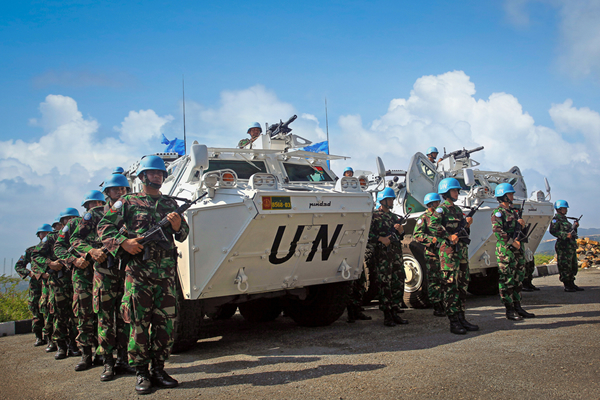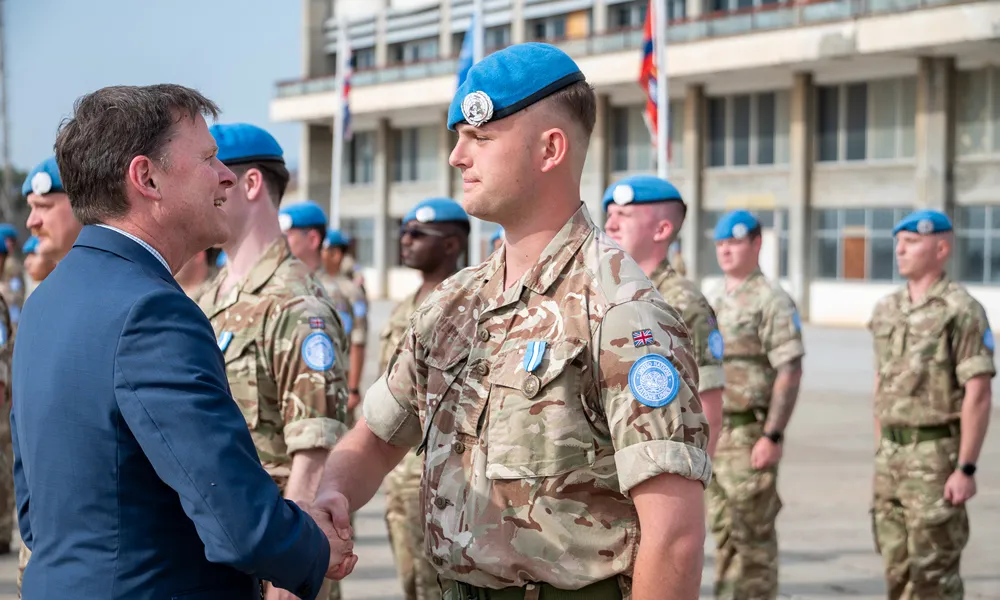The recently announced worldwide cuts for UN peacekeeping operations have already been implemented in Cyprus, with the scaled down 800-sized military force now minus a further 34 members, Politis has learned.
Senior United Nations officials said on Wednesday that the UN will have to cut a quarter of peacekeepers in nine operations around the world, including Cyprus, in the coming months due to a lack of funds, amounting to between 13,000 and 14,000 troops and police.
Smaller force heightens risk of flareup
Speaking to Politis, UNFICYP spokesperson Aleem Siddique said the planned cuts translate into the loss of around 34 military posts from a force strength of around 800 UN peacekeepers in Cyprus.
He noted that the latest cut in boots on the ground will put further pressure on the peacekeeping force to conduct patrols and respond to crises in sensitive areas, decreasing the UN’s ability to resolve flareups and avoid escalation.
“A smaller military footprint will reduce the frequency and reach of patrols, increasing pressure on remaining troops and constrain rapid response capacity in sensitive areas. This could heighten risks of incidents going undetected or unresolved, while also placing greater reliance on technological monitoring and stronger coordination with police and civilian staff to mitigate capability gaps,” said Siddique.
The UN spokesperson added that the proposed budget cuts “also have an impact on the civilian presence affecting UNFICYP’s convene and connect role, ability to manage civilian activity in the buffer zone and facilitate humanitarian services.”
The reduction in troops is less than the 25% earmarked for other missions since Cyprus and Greece pay nearly half the UNFICYP budget, meaning the belt tightening only affects the other half of the budget.
According to informed sources, UNFICYP implemented the reduction early, using last month’s troop rotation to reduce its size by 34, counting for 30 military and four staff officers. The troop cuts were implemented from across the four major contributors to UNFICYP: Slovakia, Hungary, UK, and Argentina.
Before leaving office this summer, the former UNFICYP head and Special Representative to Cyprus Colin Stewart noted that the peacekeeping force in Cyprus had to deal with hundreds of flareups throughout the year across the buffer zone. He described UNFCYP’s job as stamping out sparks before they could spread.
Stewart’s replacement Khassim Diagne will have to deal with the further reduction to the force’s capacities when he arrives on the island this month. Diagne, who used to work with UN chief Antonio Guterres in the UN High Commission for Refugees, is due in Cyprus before the UN holds its annual anniversary on October 24, marking the coming into force of the UN Charter, and as such, the birth of the United Nations as a multilateral global body.

Cuts across nine missions
The nine missions affected by the cuts are: Cyprus, South Sudan, Democratic Republic of Congo, Lebanon, Kosovo, Central African Republic, Western Sahara, the Golan Heights demilitarized zone between Israel and Syria, and Abyei – an administrative area jointly run by South Sudan and Sudan.
"Overall, we will have to repatriate... around 25% of our total peacekeeping troops and police, as well as their equipment, and a large number of civilian staff in missions will also be affected," a senior UN official told Reuters.
The cuts come after the United States – the UN’s largest peacekeeping contributor accounting for more than 26% of funding – unilaterally cancelled a significant amount of funding appropriated for 2024 and 2025, and proposed to eliminate further funding for missions in 2026 that the White House considered to be failures, such as in Mali, Lebanon and the Democratic Republic of Congo.
While the US is currently in arrears of more than $2.8 billion, it is expected to shortly pay $680 million to the UN, easing somewhat the urgency of the situation. However, UN Secretary-General Antonio Guterres still needs to find ways to tighten the global body’s belt and do more with less as it prepares to celebrate its 80th birthday this month.
